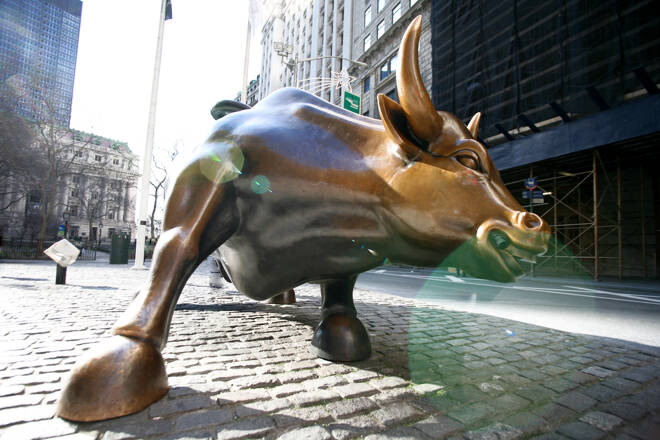Advertisement
Advertisement
U.S. Stocks Set To Open Higher On Optimism About Potential Treatments For COVID-19
By:
Contributing to market optimism, the Fed starts buying ETFs that invest in corporate debt.
World Health Organization States That Some Treatments Limit Severity Or Length Of The Coronavirus Disease
S&P 500 futures are pointing to a higher open after the WHO stated that some treatments were showing decent results against COVID-19.
The market is eager to react on any positive news on the coronavirus front, especially at the time when fears about the second wave of the virus started to emerge.
The current economic crisis has its roots in the healthcare crisis so the only way for the world to return back to normal is through either effective COVID-19 treatment or a vaccine.
The markets have previously dismissed poor economic data and focused on the upcoming recovery, and any positive news about anti-coronavirus drugs or vaccines will likely be bullish for stocks.
U.S. Federal Reserve Starts Buying Debt ETFs
An unprecedented crisis demands unprecedented measures. The Fed has decided to start purchasing ETFs invested in corporate debt to support the markets.
Not surprisingly, some market participants view it as a first step on the way to purchases of stock ETFs.
The Bank of Japan has been buying stocks for quite some time and has increased its equity-buying program during the coronavirus crisis. The results of Japan’s policy of low interest rates and never-ending QE are muted.
While Japan’s example is not inspiring, the market will likely view Fed’s debt ETF purchases as a material positive factor as it provides immediate support for asset prices.
U.S. Inflation Falls Due To Weaker Demand
The U.S. has just reported inflation data for April. Core Inflation Rate was 1.4% year-over-year and -0.4% month-over month compared to analyst consensus of 1.7% and -0.2% respectively.
Inflation Rate was 0.3% year-over-year and -0.8% month-over-month compared to analyst consensus of 0.4% and -0.8% respectively.
Inflation decreased as virus containment measures put pressure on demand. Consumer activity was hit by several factors. First, people had to stay at home because of the pandemic. Second, some consumers have lost their jobs. Third, some people have started to worry about their job security and cut back on spending.
Negative inflation rates are a dangerous phenomenon so it is highly likely that the government and the Fed will continue to use all available measures to get inflation back to the positive territory.
About the Author
Vladimir Zernovauthor
Vladimir is an independent trader, with over 18 years of experience in the financial markets. His expertise spans a wide range of instruments like stocks, futures, forex, indices, and commodities, forecasting both long-term and short-term market movements.
Advertisement
